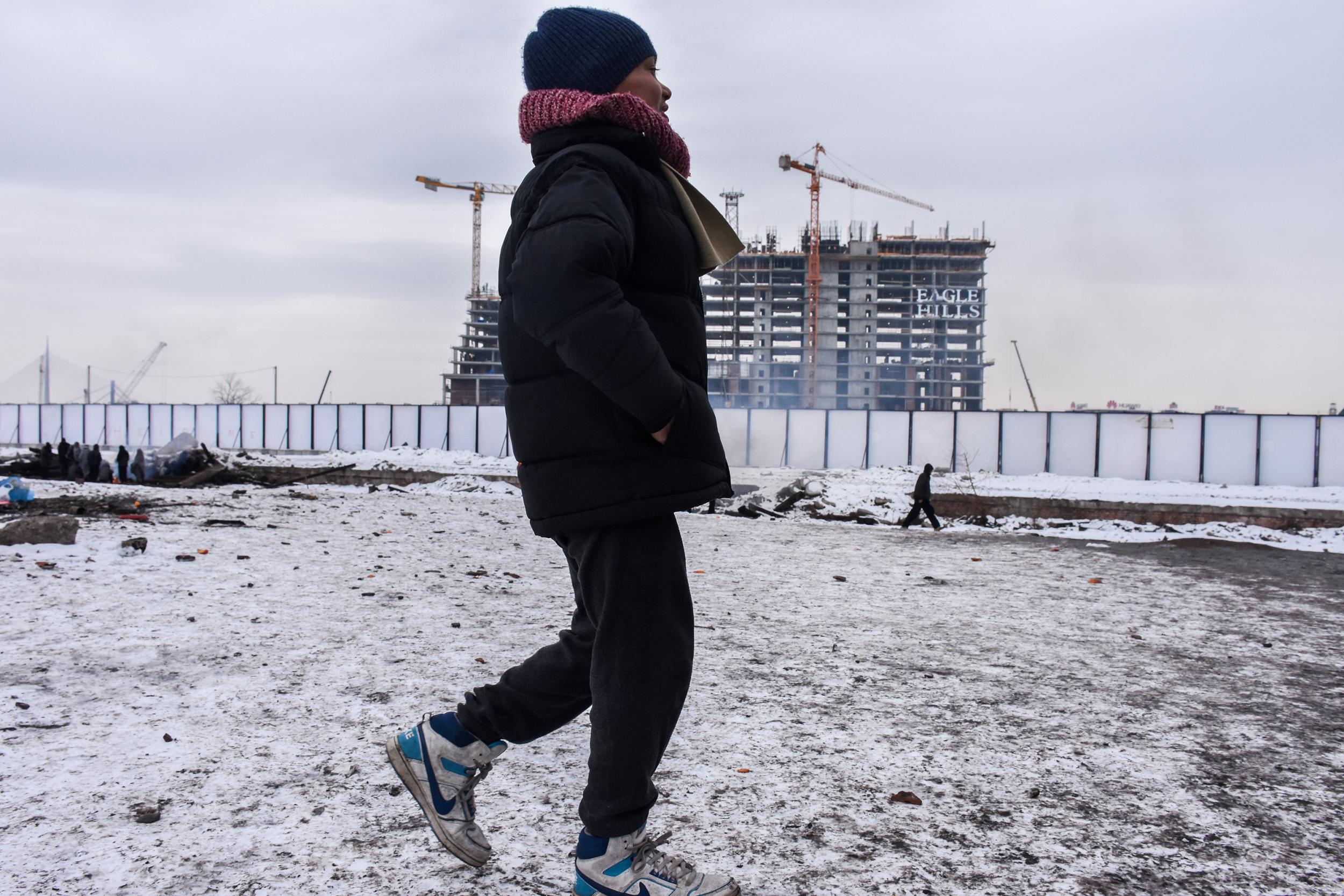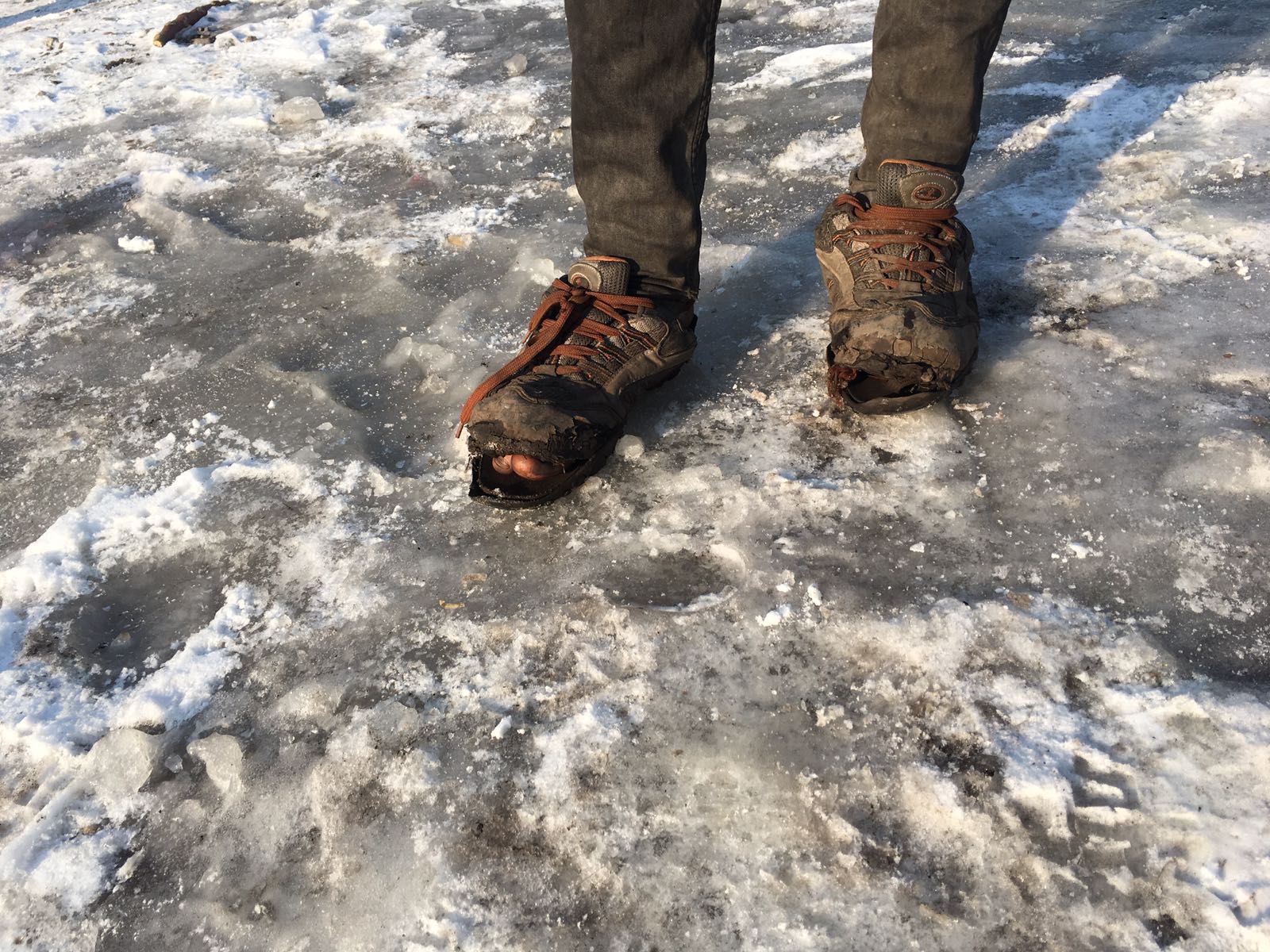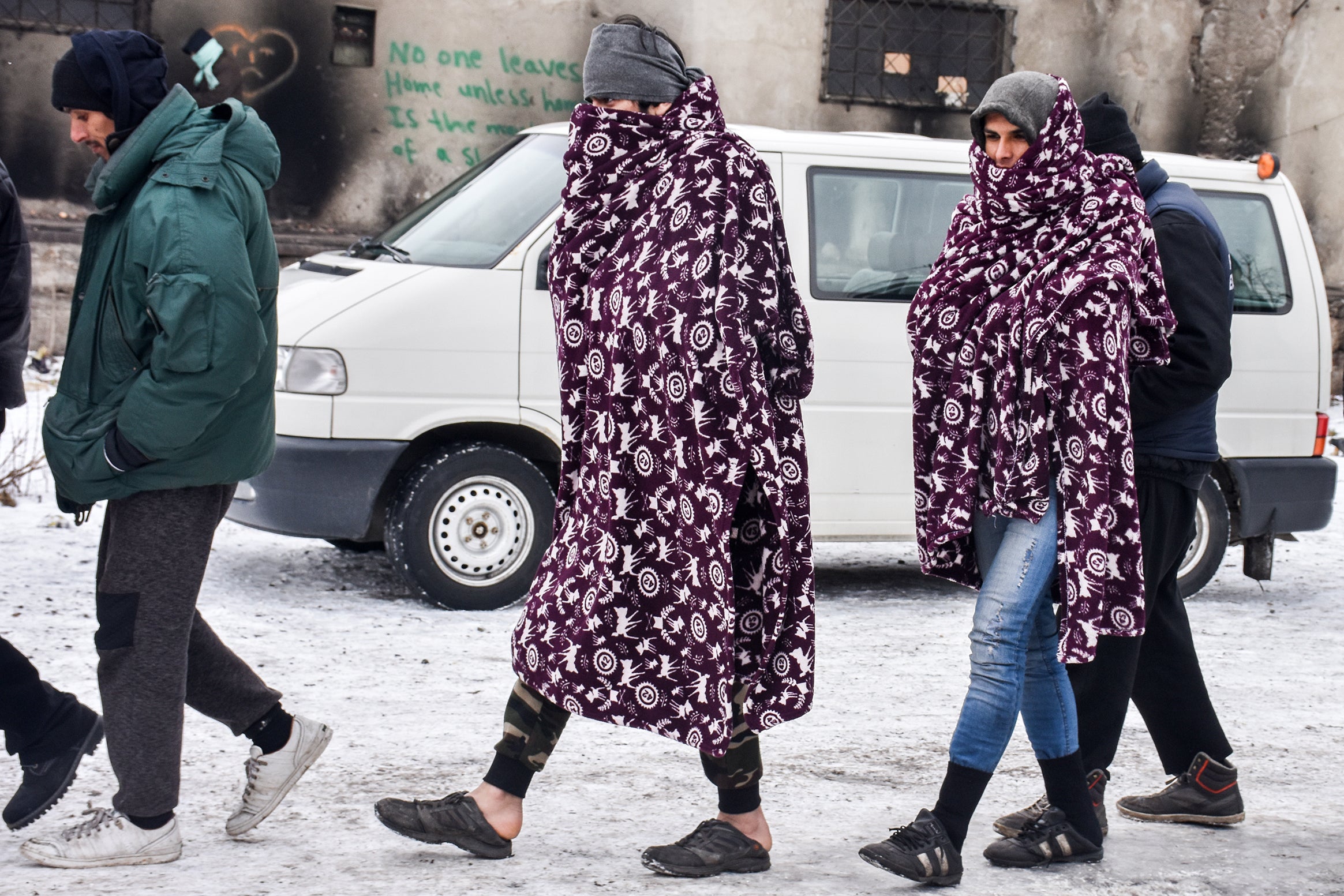Refugee children suffering dog bites and 'violent' beatings by border police in Balkans
Minors as young as 12 being illegally 'pushed back' with force into Serbia from Hungary, Croatia and Bulgaria

Your support helps us to tell the story
From reproductive rights to climate change to Big Tech, The Independent is on the ground when the story is developing. Whether it's investigating the financials of Elon Musk's pro-Trump PAC or producing our latest documentary, 'The A Word', which shines a light on the American women fighting for reproductive rights, we know how important it is to parse out the facts from the messaging.
At such a critical moment in US history, we need reporters on the ground. Your donation allows us to keep sending journalists to speak to both sides of the story.
The Independent is trusted by Americans across the entire political spectrum. And unlike many other quality news outlets, we choose not to lock Americans out of our reporting and analysis with paywalls. We believe quality journalism should be available to everyone, paid for by those who can afford it.
Your support makes all the difference.Refugee and migrant children are routinely suffering dog bites and “violent” beatings by police as they attempt to cross borders along the Balkans route, Save the Children has warned.
Children as young as 12 are being forcefully and unlawfully pushed back into Serbia from Hungary and Croatia, despite having already crossed the border, the charity said.
Up to 100 refugees are arriving in the country each day, with children accounting for 46 per cent of new arrivals.
“Migrants are being beaten by police and mauled by dogs, having their blankets and shoes stolen. It is a way for police to make the passage as inhospitable as possible,” Gemma Parkin, spokesperson for Save the Children, told The Independent.
“A whole group of teenagers told me beatings, dog bites and push-backs had become commonplace.”
According to the United Nations High Commissioner For Refugees (UNHCR), 1,600 migrants have been illegally forced back across borders of Balkan countries since November, leaving those who have arrived in Belgrade “trapped in limbo” and unable to continue their journey.

The charity believes an average of 30 clandestine push-backs are happening each day, with many refugees being denied their right under asylum law to an individual assessment of their need for international protection.
Save the Children warned push-backs were causing more migrants to cross woods and snow-covered mountains that border Bulgaria to try and continue their journey.
“One Iraqi family with an 8-year-old daughter walked through the night with two blankets between them in -12 temperatures - the girl when she arrived at the aid centre in Belgrade was deeply distressed,” Ms Parkin said.
Charities fear Serbia is increasingly becoming a “dumping ground” for refugees and migrants who have been refused access to neighbouring countries.
The Government has been categoric that it can only accept 6,000 refugees – an estimated 7,000 are now believed to be in the country.
Since reaching its quota, Serbian officials have advised NGOs to desist from providing warm clothes, food and shoes to people outside of official shelters.

Save the Children said the measures are causing a spike in the numbers of refugees suffering frostbite in the perishing conditions.
Unaccompanied children as young as eight, many without gloves or proper shoes, continue to sleep rough in Belgrade’s abandoned warehouses in freezing temperatures, waiting for smugglers to facilitate an illegal entry into Hungary.
An estimated 20 per cent of refugee children in Serbia are unaccompanied and travelling alone.
“In truth the refugee crisis has not abated. It’s simply a more dangerous route, especially for children,” Jelena Besedic, Save the Children’s advocacy manager in Serbia said.
“The EU-Turkey deal has given smugglers a firmer grip on a hugely profitable business, incorporating increasingly dangerous tactics to circumvent authorities.”
The migrants are arriving on the Balkans Route, which was officially closed in March 2015 but remains in active use by those hoping to make it to Northern Europe.
Join our commenting forum
Join thought-provoking conversations, follow other Independent readers and see their replies
Comments